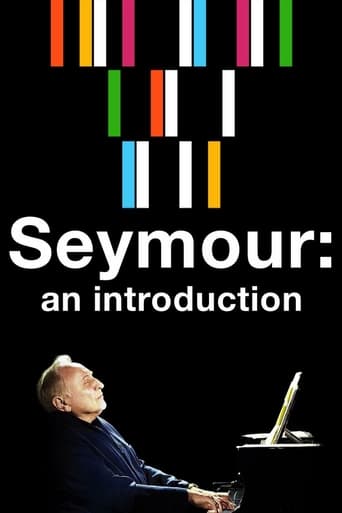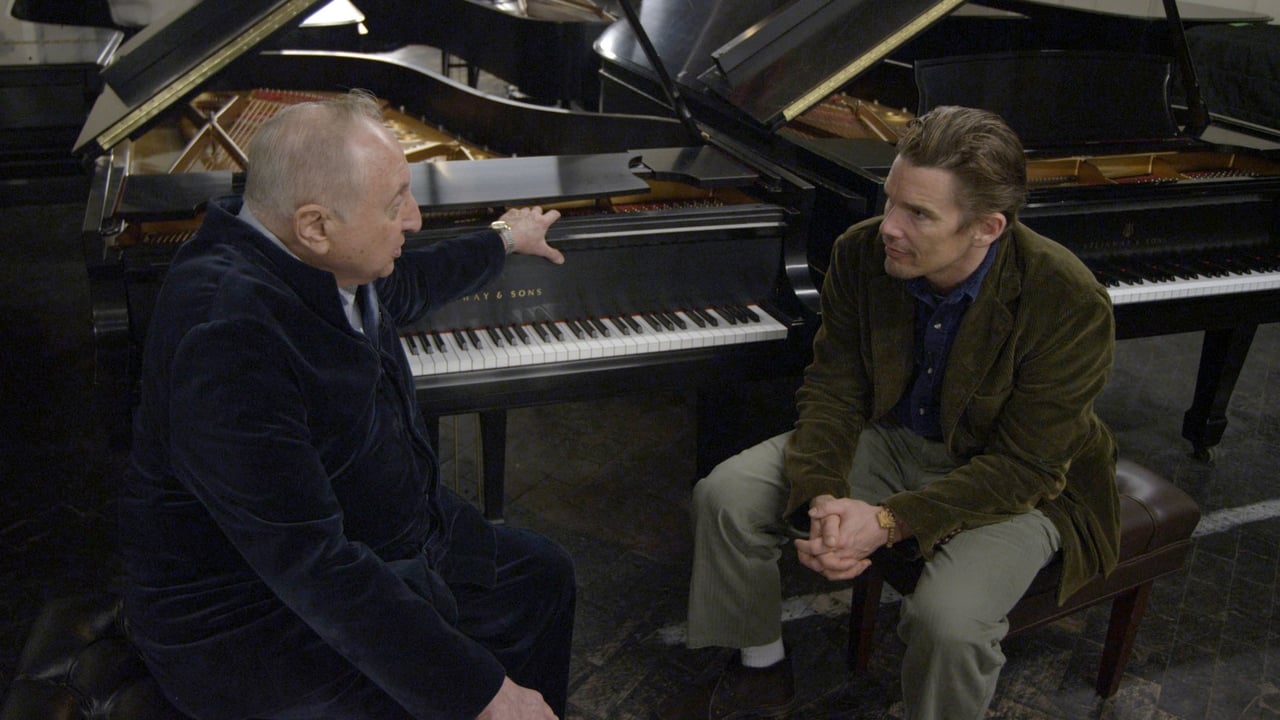Larry Silverstein
This is an exceptional documentary centering on Seymour Bernstein, the classical pianist, composer, and teacher. Now 88-years-old, he retired from concert appearances at age 50 to devote more time to teaching and mentoring others. Bernstein had me rather mesmerized with his distinctive tones, as he spins fascinating stories and anecdotes from his life, adding some quite profound words of wisdom that he's gathered over his lifetime.The superb actor Ethan Hawke directs the documentary, and I read that he regards Bernstein as a mentor of his. Both men during the interviews, reveal some very personal aspects of their life, including stage fright and how to get fulfillment for the remainder of their time on this earth.Overall, I was totally engaged, from start to finish, in this remarkable movie, and there's some wonderful classical music to enjoy as well.
Film Nut
Some very thoughtful and well-written reviews have been posted about this film. Justifiably so!For me the beauty of it is in it's pure portrayal of a regular guy who understood early what captivated him.....and his joy for it and exploration of it has never wavered. He remained a performing musician for as long as it made sense to him and then transitioned to being a valued teacher of other musicians.Seymour is also a thinker and has come to some meaningful and wonderful conclusions about life and purpose. He articulates those in his ever gentle manner. I very much identified with the part where he speaks of looking within for answers and meaning more than looking to external entities or individuals to provide you with those. So, so true.I was quite choked up towards the end but not from sadness; no, quite the opposite. From bearing witness to a life that has been, all of, fulfilling, purposeful, simple, deep, accomplished, stressful, pained from difficult relationships, enlightened and content.Ethan Hawke, who has never really resonated with me (sorry, bro), as writer and director, has produced a fantastic film. I would say this is his calling and I walked out of the movie thinking, 'oh my gosh, I hope he does more films like this.' Go see it.
Victoria Weisfeld
This documentary, filled with beautiful music, is an étude of acclaimed concert pianist Seymour Bernstein and a joy, start to finish. Bernstein retired so he could pour his musical ideas into the vessels of his students. And not just musical ideas; his philosophy is that having access to emotion in music encourages access to emotion and satisfaction in other aspects of life. We see him providing pianists of all ages with just the right amount of subtle guidance to dramatically elevate their performances, encourage them to compose as well as play, and, apparently, achieve harmony in life in general. Scenes take place in the one-room apartment he's had for 40 years on the upper East Side of Manhattan, near Central Park, in various venues where former students interviewed him, NYU Master Classes, in the piano testing room of Steinway New York, and finally, its main floor rotunda, where he plays a concert to an audience of former students, colleagues, and fans. The interactions with students, former students, and other musicians are revealing, and none more so than his conversations with the film's director, actor Ethan Hawke. Hawke met Bernstein serendipitously at a dinner and discovered in him a person with whom he could discuss the anxieties of performance, and the disconnect between good work and success and Bernstein, with what seems to be characteristic generosity, shared his insights. He certainly did not reach his current eminence without his own challenges. When he was young, his father would say, "I have three daughters and a pianist," which felt like a rejection of him as a son and pained him mightily. As a young man, he served in the U.S. Army in Korea and teamed up with a talented violinist and a tenor and, despite their commanding officer's skepticism, put on a concert for the troops—most of whom had never heard "serious" or classical music before. "They wouldn't let us off the stage," Bernstein says with glee, even 60 years later. The concert was so successful a tour of front-line camps was arranged. The memory is also bitter, because Bernstein remembers the war dead, and the pain of seeing those body bags has hardly faded. Except for these memories, the movie is strongly up-beat, with a man doing what he loves and people (students, audiences, moviegoers) responding to his skill and passion. As Detroit News critic Tom Long says, "The great joy of the film, whether you know piano or not, is watching Bernstein teach." This is a man you will be glad you got to know. The film ends with a typically modest and inspiring Bernstein statement: "I never thought that, with my two hands, I could touch the sky."
vicki_kozel
Sane, clean and perfectly put together, this film is a quiet rebellion against vulgarity and sensationalism so prevalent in today's entertainment and art. The documentary is a portrait of a classical pianist, drawn by a movie star, in which a master musician ponders on the relationship between a person and his inner creative self. A topic like this always runs a risk of coming across as abstract and esoteric, which in this film is delightfully not the case. The conversation ends up being about subjects painstakingly relevant to any performer: stage fright (and what an artist should make of it), craft, truthfulness to the source, eccentricity versus authenticity, teaching, artistic bravery and success.The film is filled with wonderful stories like this one: drafted into the army during the Korean War, Seymour finds himself marching for miles tirelessly while his fellow soldiers, seemingly stronger and more fit than he is, faint of exhaustion. He attributes his endurance to his "musician mind set", an explanation, both, unexpected and convincing in the context of the film.Seymour's every action is motivated by honesty. If there was a stage in his life where he did not feel completely in peace internally, he corrects that eventually, always bringing himself to a state of a perfect inner comfort. There are a few examples of these struggles in the film – the most notable one, of course, is Seymour quitting his successful concert pianist career in favor of teaching. Very appropriately, the film mimics its subject in its honesty and uncompromising taste. Unfortunately, it also does so in its limited popularity. Call me naive, but I really don't get how a piece of nonsense like Fifty Shades of Grey grows in its media presence with every new bad review it gets, and how a treasure like "Seymour
" gets overlooked by 99.9% of cinema goers.One more thing. The film is a visual and musical feast. From Seymour's shaded solitary apartment in Manhattan, to the breathtakingly beautiful views of Central Park, to the Rotunda of Steinway Hall, to piano pieces by Chopin, Schumann, Beethoven and Bach, there are countless delicacies for the audiences to savor. If the film had no other merits, but cinematography and musical score, it'd be still worth watching.


 AD
AD

